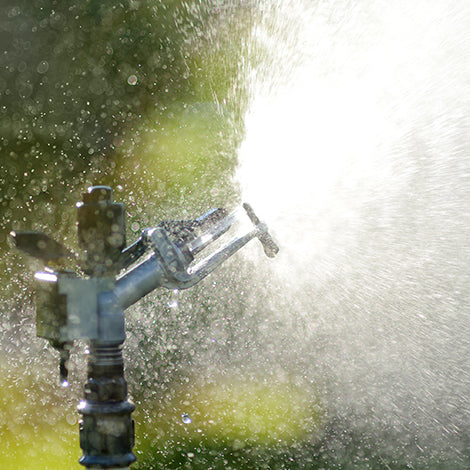Regular Inspection Checklist for Garden Freeze Prevention
Regular Inspection Checklist for Garden Freeze Prevention: Ensuring Your Garden's Winter Survival

Preparing your garden for winter is crucial to prevent freeze damage. A regular inspection checklist can help you ensure that every aspect of your garden is ready to withstand the cold. This beginner's guide will walk you through an effective freeze prevention strategy. By following these steps, you can maintain a healthy and vibrant garden throughout the winter months.
Understanding the Importance of Regular Inspections
Why Regular Inspections Matter
Regular inspections are essential to identify potential issues before they become major problems. Freezing temperatures can cause significant damage to plants, soil, and garden infrastructure. By inspecting your garden regularly, you can take timely actions to mitigate these risks and keep your garden in optimal condition.
Key Areas to Inspect
Focus your inspections on the most vulnerable areas of your garden, including outdoor faucets, water lines, irrigation systems, and delicate plants. Paying attention to these areas will help you create a comprehensive freeze prevention strategy.
Creating Your Inspection Checklist
Checking Outdoor Faucets and Water Lines
Outdoor faucets and water lines are particularly susceptible to freezing. Ensure that all outdoor faucets are properly insulated and that water lines are drained. Installing freeze-proof covers on faucets can provide an additional layer of protection. Inspect for any leaks or damage that could exacerbate freeze-related problems.
Draining and Storing Garden Hoses
To prevent hoses from cracking and becoming unusable, make sure to drain and store them before the first frost. Disconnect hoses from outdoor faucets, drain them thoroughly, and store them in a frost-free location. This simple step can save you from costly replacements in the spring.
Protecting Plants from Freeze Damage
Applying Mulch Around Plants
Mulch acts as an insulating layer, protecting plant roots from freezing temperatures. Apply a thick layer of mulch around the base of your plants to retain soil moisture and temperature. This is especially important for perennials and other sensitive plants.
Using Frost Blankets and Plant Covers
Frost blankets and plant covers provide additional protection for delicate plants. Cover your plants before nightfall to trap heat and prevent frost damage. Be sure to remove the covers during the day to allow sunlight and air circulation.

Winterizing Irrigation Systems
Draining Irrigation Systems
Water left in irrigation systems can freeze and cause pipes to burst. Drain all water from your system and use compressed air to blow out any remaining moisture. This step ensures that your irrigation system remains intact throughout the winter.
Inspecting and Repairing Irrigation Components
Regularly inspect your irrigation system for any signs of wear or damage. Repair any leaks or broken components before winter sets in. This proactive approach will help you avoid costly repairs and ensure your system is ready to use in the spring.
Maintaining Garden Tools and Equipment
Cleaning and Storing Tools
Clean and dry all garden tools before storing them in a dry, frost-free environment. Proper maintenance prevents rust and extends the lifespan of your tools. For larger equipment, consider using protective covers to shield them from the elements.
Preparing Lawn Equipment
Prepare lawn equipment such as mowers and tillers for winter storage. Empty fuel tanks, clean the equipment thoroughly, and store them in a sheltered location. Regular maintenance will keep your equipment in good working condition for the next gardening season.
Monitoring Weather Conditions and Adjusting Your Strategy
Staying Informed About the Weather
Stay updated on weather forecasts and adjust your freeze prevention strategy accordingly. If an extreme cold front is expected, take additional measures to protect your garden. Flexibility and vigilance are key to effective garden management during winter.
Regular Inspections Throughout Winter
Continue to inspect your garden regularly throughout the winter. Check for signs of frost damage, such as wilting or discolored leaves, and address any issues promptly. Early intervention can prevent more significant problems later.
Conclusion: A Healthy Garden All Winter Long
By following this regular inspection checklist, you can effectively prevent freeze damage in your garden. From insulating outdoor faucets to using frost blankets, each step plays a crucial role in maintaining a healthy and vibrant garden. With proper preparation and ongoing maintenance, your garden will thrive even in the coldest months.
By taking a proactive approach to garden maintenance, you'll be rewarded with a beautiful and thriving space, ready to flourish when spring arrives. Happy gardening!





